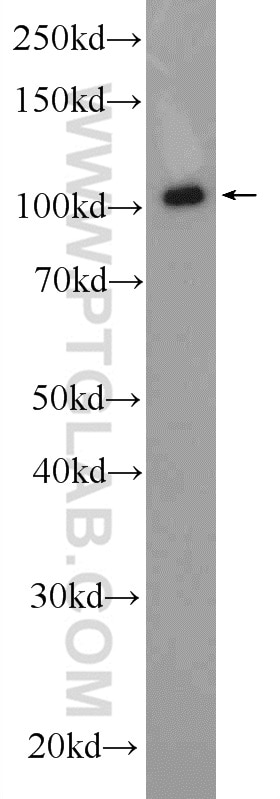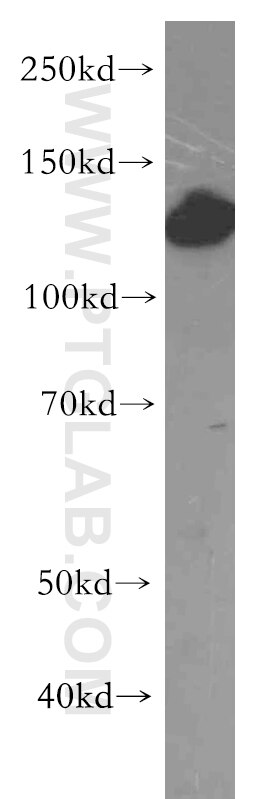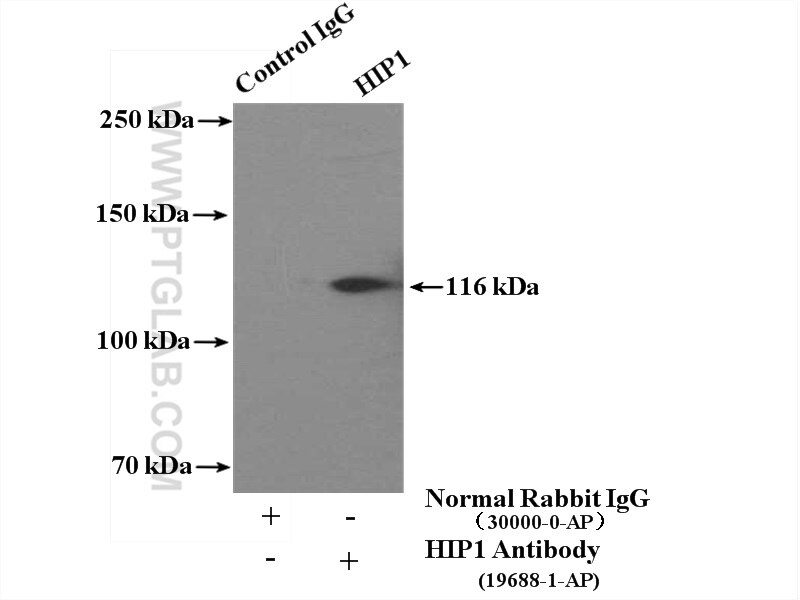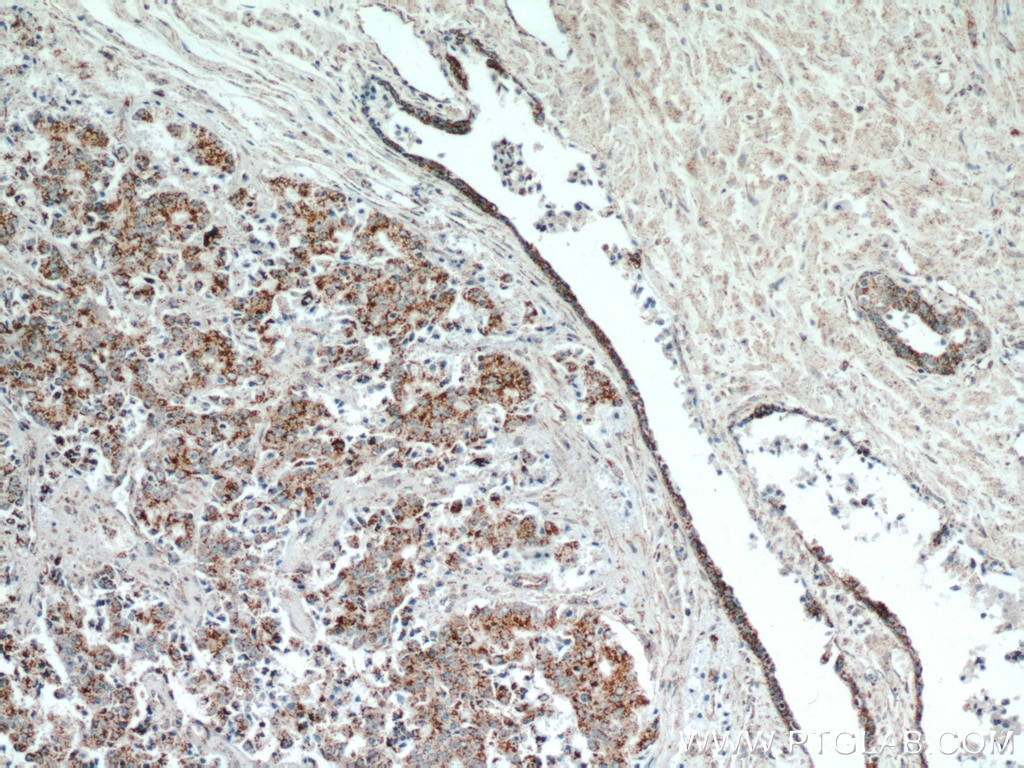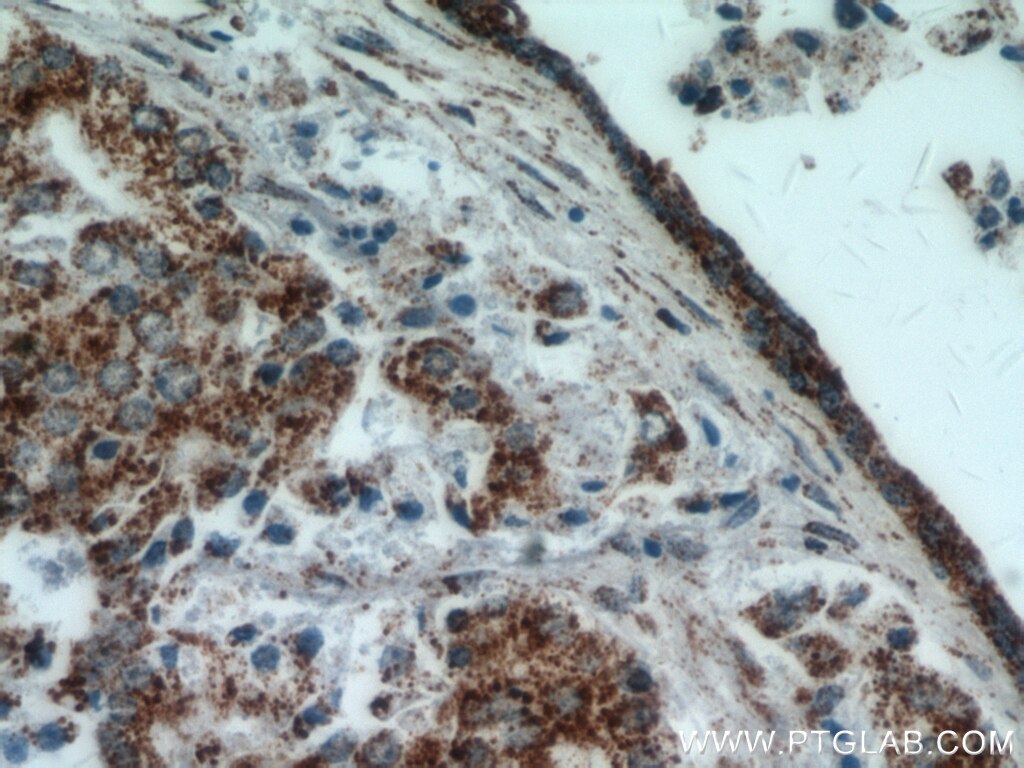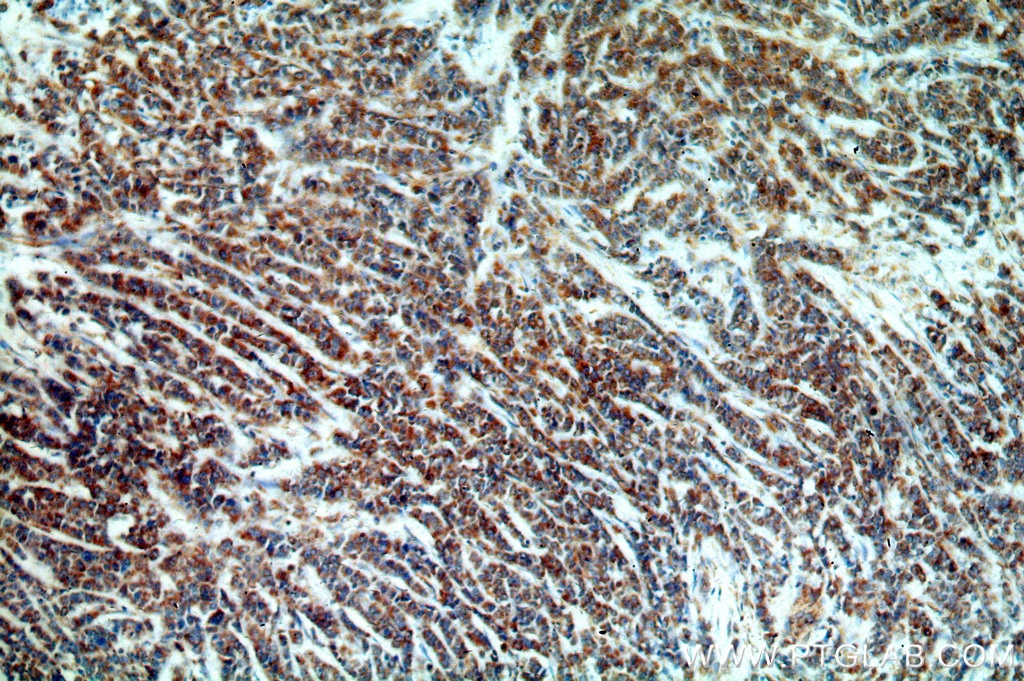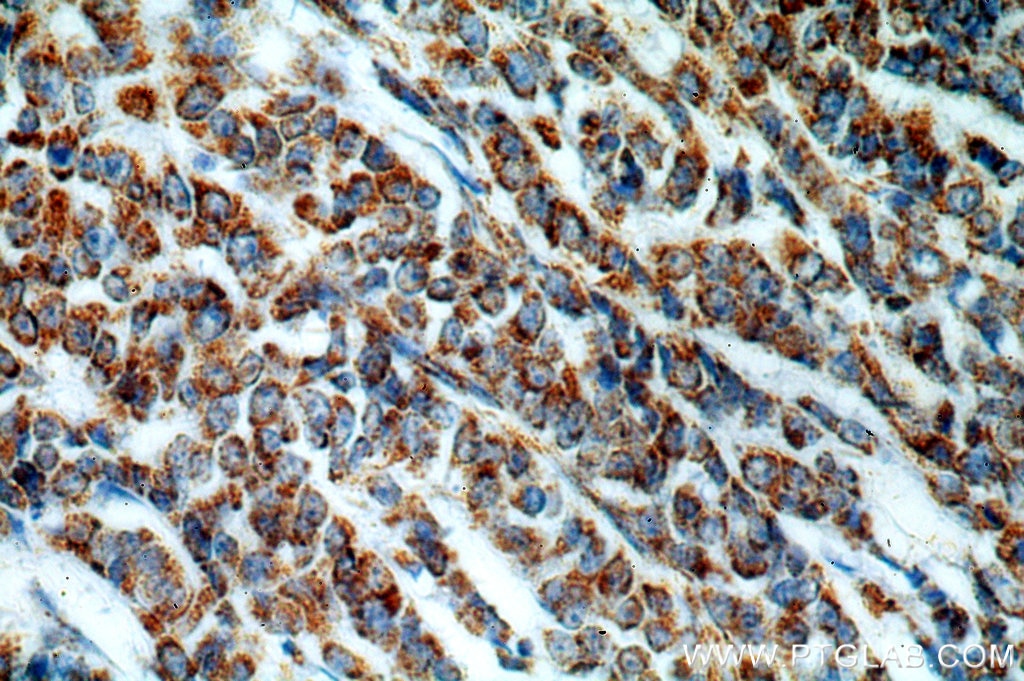Anticorps Polyclonal de lapin anti-HIP1-Specific
HIP1-Specific Polyclonal Antibody for WB, IP, IHC, ELISA
Hôte / Isotype
Lapin / IgG
Réactivité testée
Humain, rat, souris
Applications
WB, IP, IHC, ELISA
Conjugaison
Non conjugué
N° de cat : 19688-1-AP
Synonymes
Galerie de données de validation
Applications testées
| Résultats positifs en WB | cellules HEK-293, cellules COLO 320, tissu de côlon de souris |
| Résultats positifs en IP | cellules HEK-293 |
| Résultats positifs en IHC | tissu de cancer de la prostate humain, tissu de cancer du côlon humain il est suggéré de démasquer l'antigène avec un tampon de TE buffer pH 9.0; (*) À défaut, 'le démasquage de l'antigène peut être 'effectué avec un tampon citrate pH 6,0. |
Dilution recommandée
| Application | Dilution |
|---|---|
| Western Blot (WB) | WB : 1:500-1:2000 |
| Immunoprécipitation (IP) | IP : 0.5-4.0 ug for 1.0-3.0 mg of total protein lysate |
| Immunohistochimie (IHC) | IHC : 1:50-1:500 |
| It is recommended that this reagent should be titrated in each testing system to obtain optimal results. | |
| Sample-dependent, check data in validation data gallery | |
Informations sur le produit
19688-1-AP cible HIP1-Specific dans les applications de WB, IP, IHC, ELISA et montre une réactivité avec des échantillons Humain, rat, souris
| Réactivité | Humain, rat, souris |
| Hôte / Isotype | Lapin / IgG |
| Clonalité | Polyclonal |
| Type | Anticorps |
| Immunogène | Peptide |
| Nom complet | huntingtin interacting protein 1 |
| Masse moléculaire calculée | 116 kDa |
| Poids moléculaire observé | 116 kDa |
| Numéro d’acquisition GenBank | NM_005338 |
| Symbole du gène | HIP1 |
| Identification du gène (NCBI) | 3092 |
| Conjugaison | Non conjugué |
| Forme | Liquide |
| Méthode de purification | Purification par affinité contre l'antigène |
| Tampon de stockage | PBS avec azoture de sodium à 0,02 % et glycérol à 50 % pH 7,3 |
| Conditions de stockage | Stocker à -20°C. Stable pendant un an après l'expédition. L'aliquotage n'est pas nécessaire pour le stockage à -20oC Les 20ul contiennent 0,1% de BSA. |
Informations générales
HIP1 (huntingtin interacting protein-1) is a endocytic protein that plays a role in clathrin-mediated endocytosis and trafficking. HIP1 can interact with huntingtin (HTT) protein whose mutations cause Huntington's disease (HD), thus gets involved in neurodegeneration. By stabilizing receptor tyrosine kinases following ligand-induced endocytosis, HIP1 may act to promote cell survival. HIP1 is overexpressed in a variety of human cancers and may be a potential predictor for cancer progression and prognosis.
Protocole
| Product Specific Protocols | |
|---|---|
| WB protocol for HIP1-Specific antibody 19688-1-AP | Download protocol |
| IHC protocol for HIP1-Specific antibody 19688-1-AP | Download protocol |
| IP protocol for HIP1-Specific antibody 19688-1-AP | Download protocol |
| Standard Protocols | |
|---|---|
| Click here to view our Standard Protocols |
